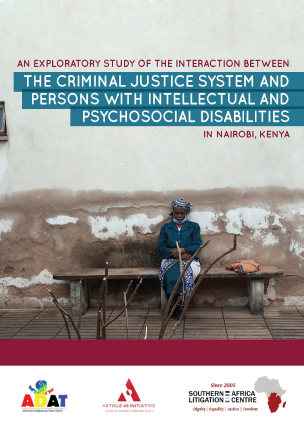Access to justice has long seemed elusive for persons with various intellectual or psychosocial disabilities in Kenya. The fear of a child with an intellectual or psychosocial disability growing up and encountering the justice system only never to be heard from again is a frequent topic of discussion amongst caregivers.
Safeguarding these children and their possible future interaction with the justice system then becomes of utmost importance. In 2018, a situational analysis was conducted on the status of access to justice for persons with intellectual and psychosocial disabilities. The report identified barriers that prevented persons with intellectual and psychosocial disabilities from enjoying the right to access justice throughout the criminal process.
This report illustrates the impact that petty offence charges have on persons with intellectual and psychosocial disabilities and their caregivers. There is a need to understand how the decision to charge a person with an intellectual or psychosocial disability with a petty offence is arrived at, how the Office of the Director of Public Prosecution (ODPP) uses the decision to charge persons with intellectual or psychosocial disabilities and the criteria for delegating this decision to police officers.

